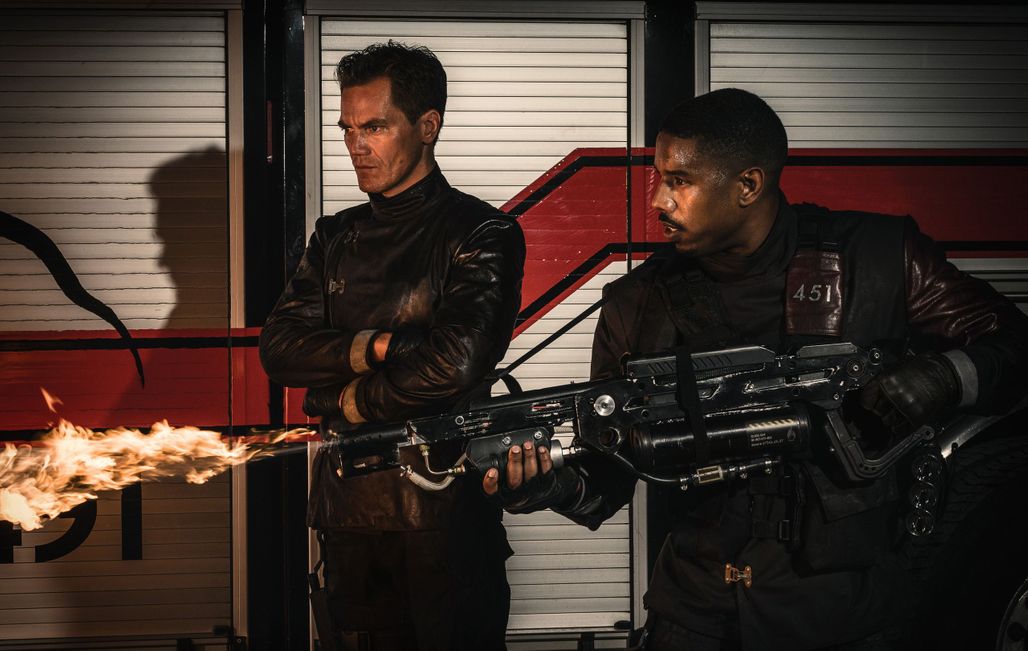
Ramin Bahrani revisits the dystopian world of Fahrenheit 451

With Fahrenheit 451, the Iranian-American director Ramin Bahrani provides a new vision of the famous eponymous novel by Ray Bradbury, previously adapted to the cinema by François Truffaut in 1966. The film, which portrays Michael Shannon and Michael B. Jordan in a future where people are controlled through the media and disinformation, is being screened Out of Competition.
To attain social harmony and collective happiness, the young fireman Montag is employed to burn all traces of culture under the watchful eye of his friend and mentor, Captain Beatty. Entire chapters of history are thus erased or rewritten to make room for the new media on which citizens depend. Deprived of knowledge, citizens stay at home interacting with their screens, guided by "Yuxie", a personal assistant bestowed with artificial intelligence, who listens in and spies on them day and night. Until the day in which Montag, influenced by Clarisse, a member of the organized resistance to save books, questions the ideology of his partner and turns against him.
Through this grim science-fiction portrait of the future, Ramin Bahrani questions the importance given to human rights and freedom of expression in a world “that increasingly resembles what Ray Bradbury imagined.”
I’ve come to realise that all this is true because we’ve become willing to abandon our knowledge, our identity, our books, our history, our dreams, our culture–everything–in favour of high technology, multinationals and politicians.
Consequently, Fahrenheit 451, which denounces the disappearance of real information for the benefit of propaganda within a society that no longer attempts to discern truth from fiction, resonates with particular force in our current times.


